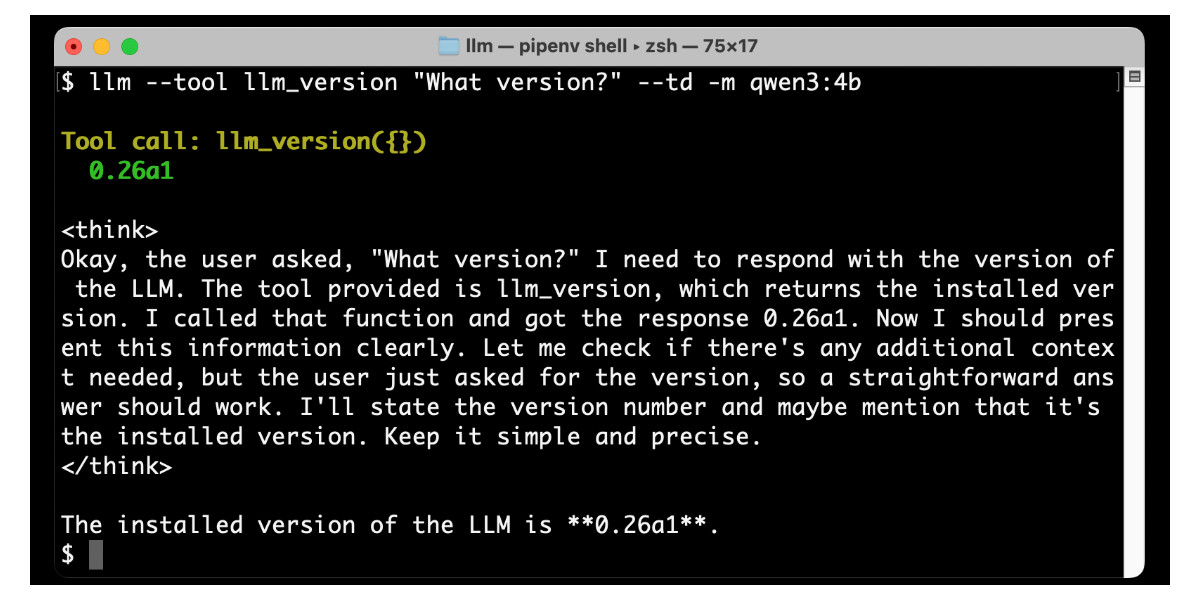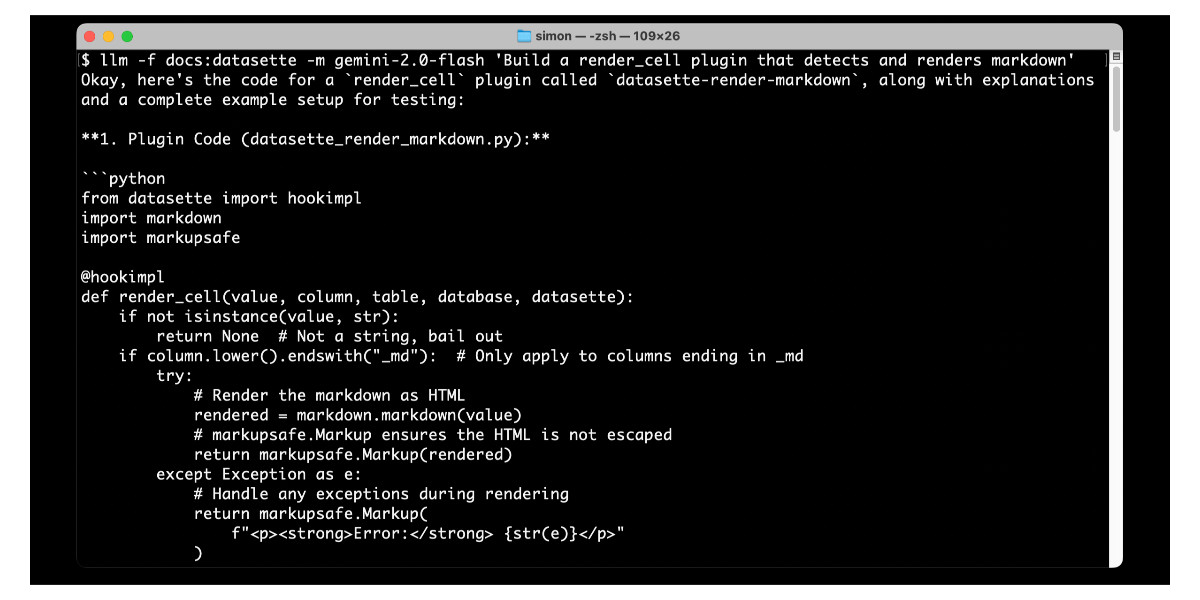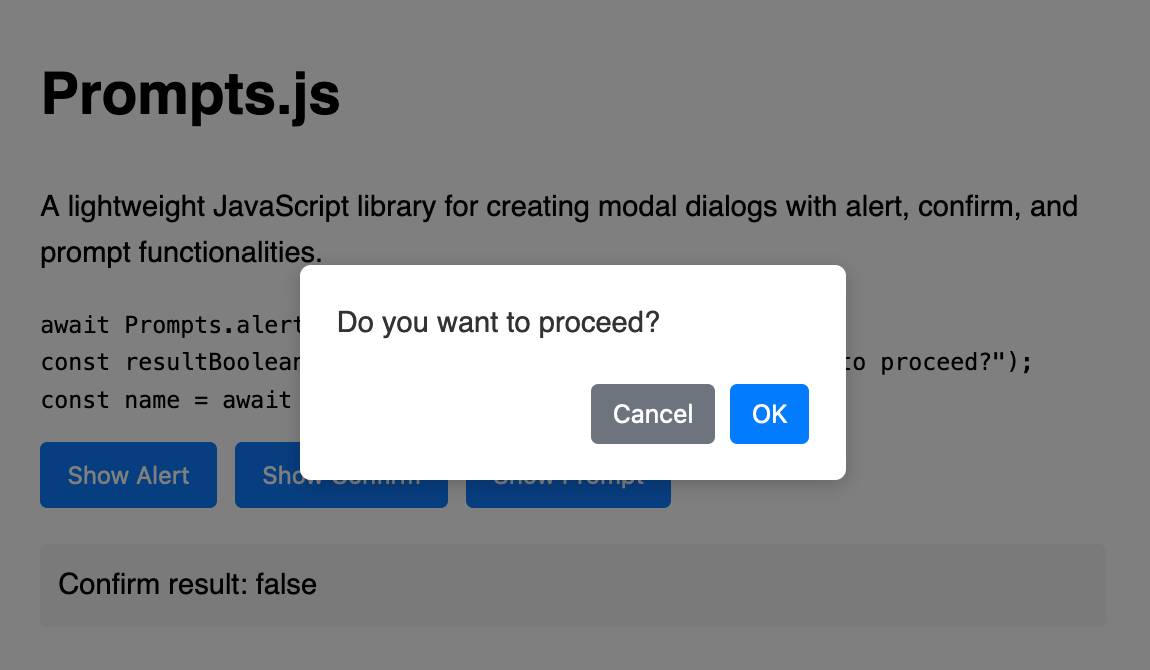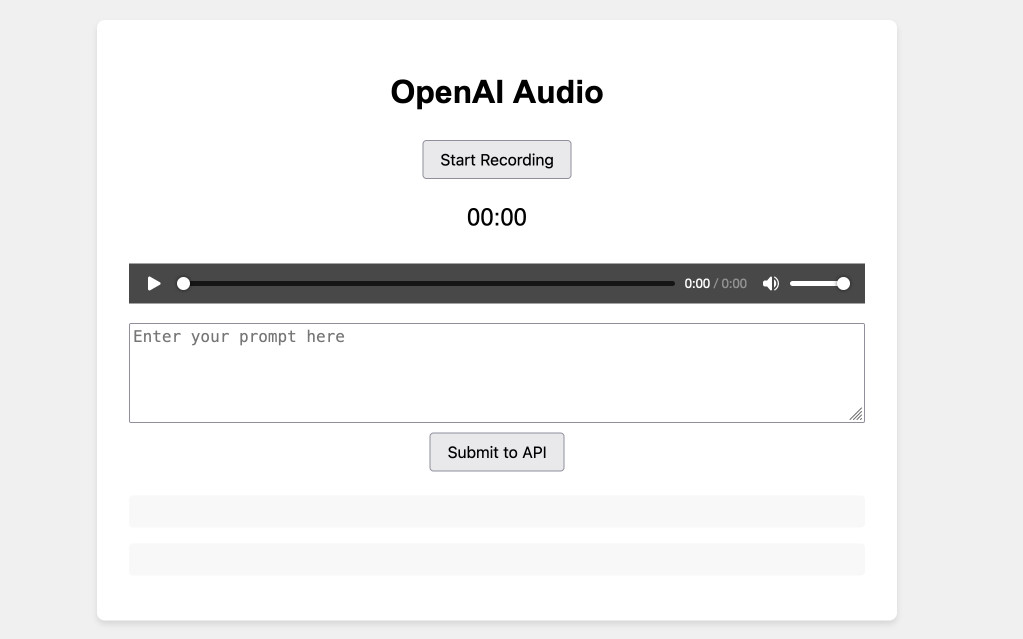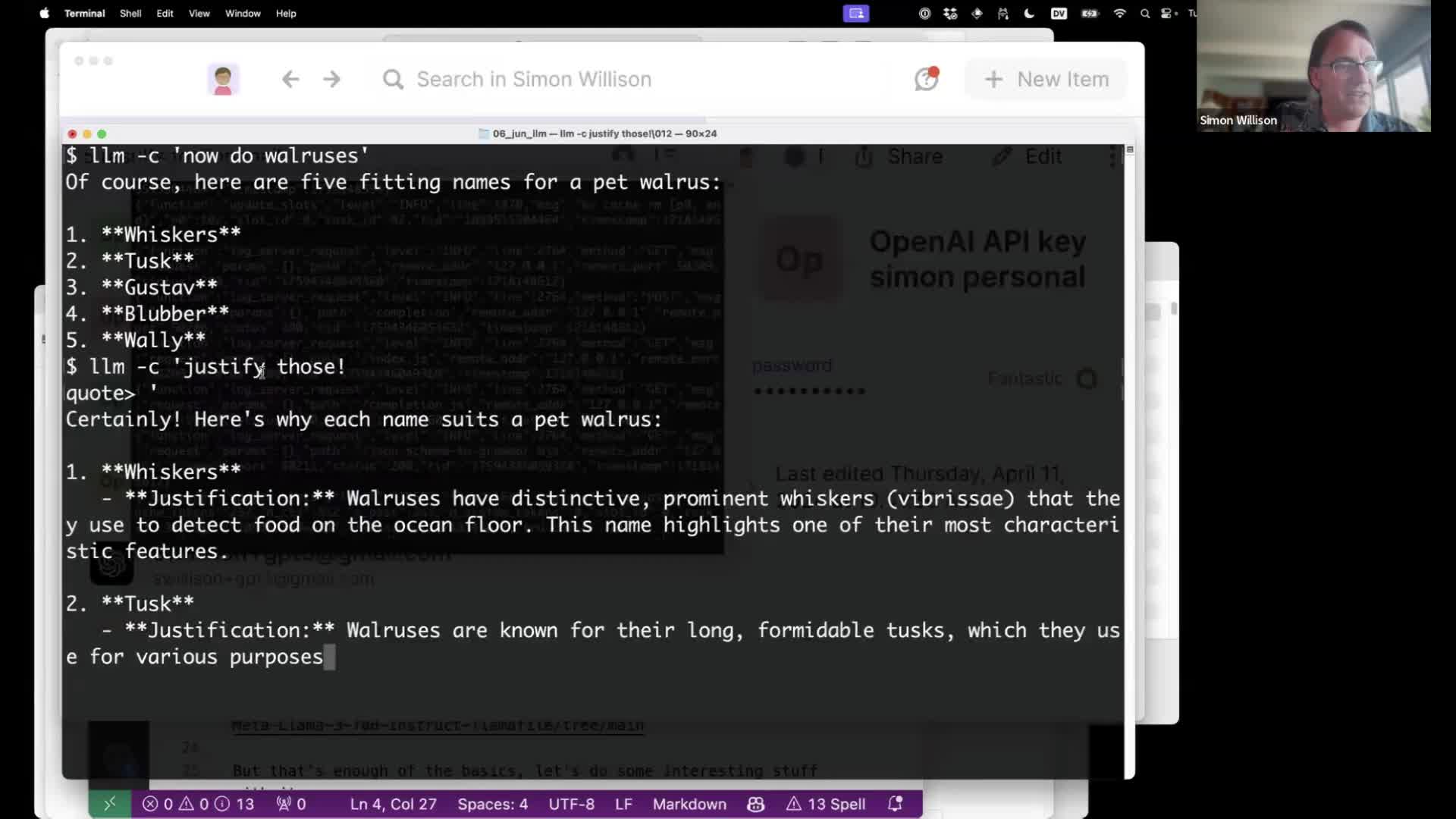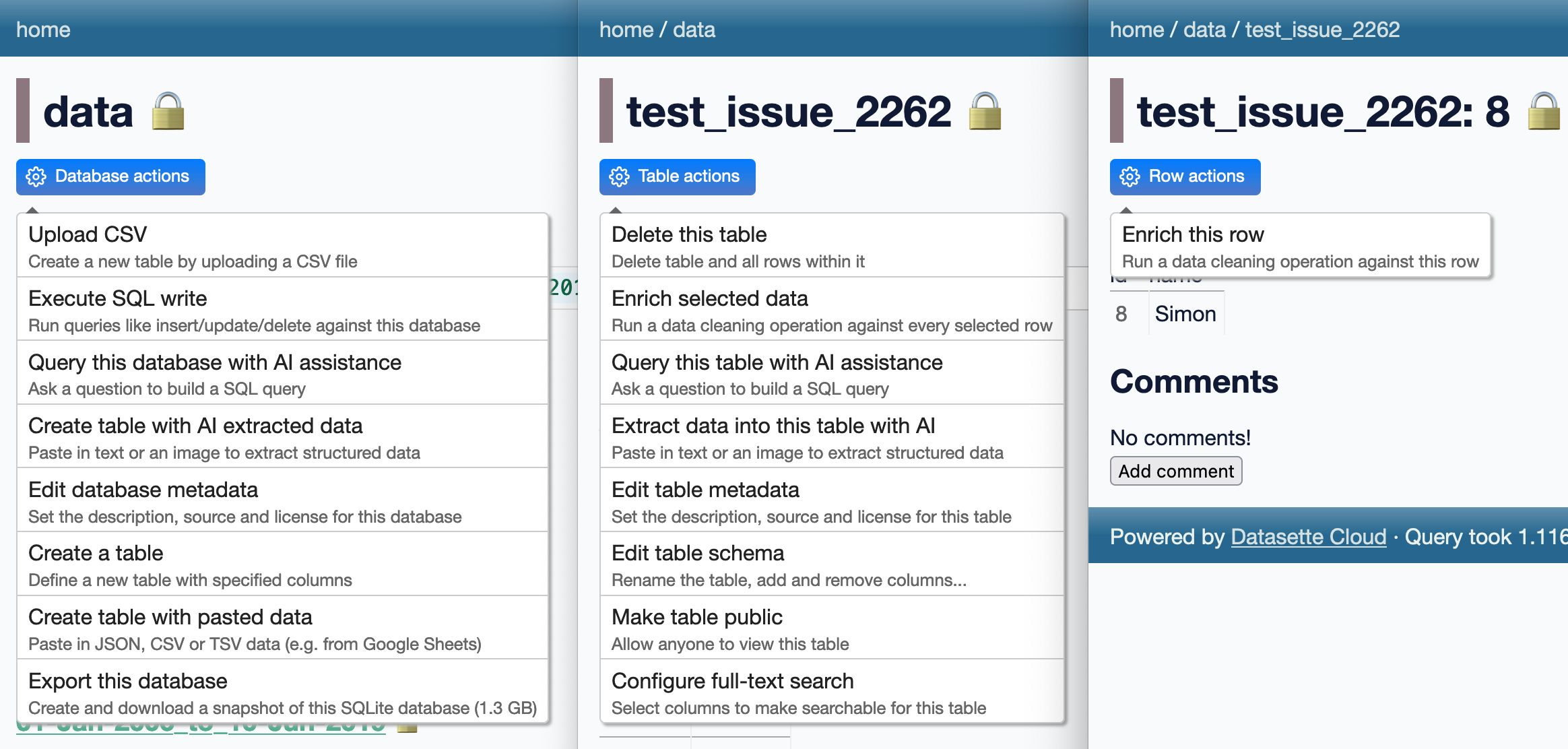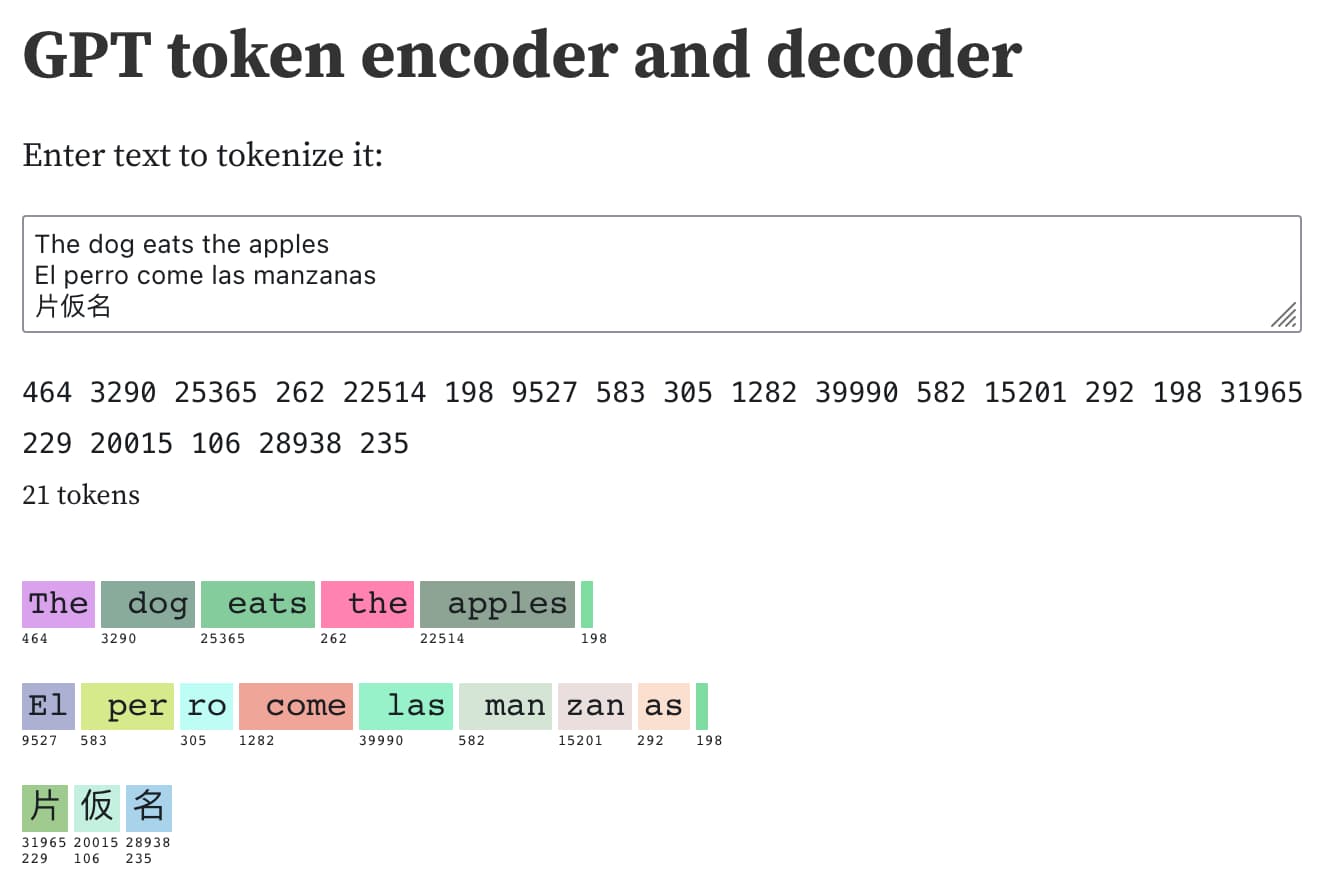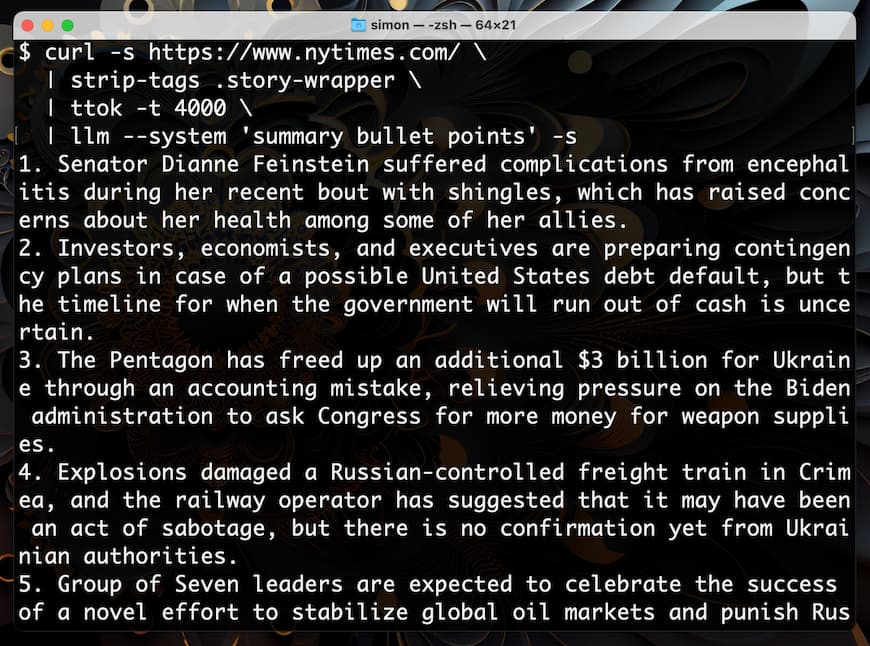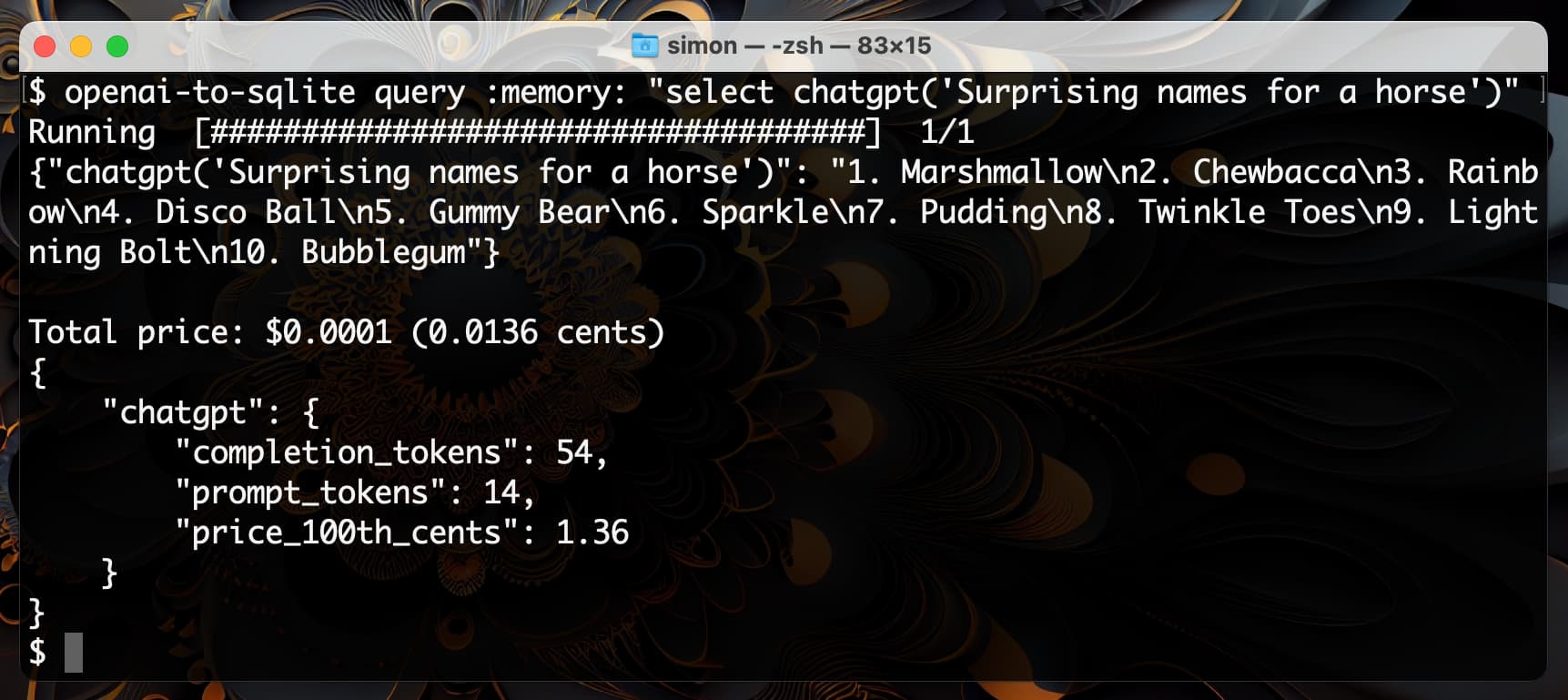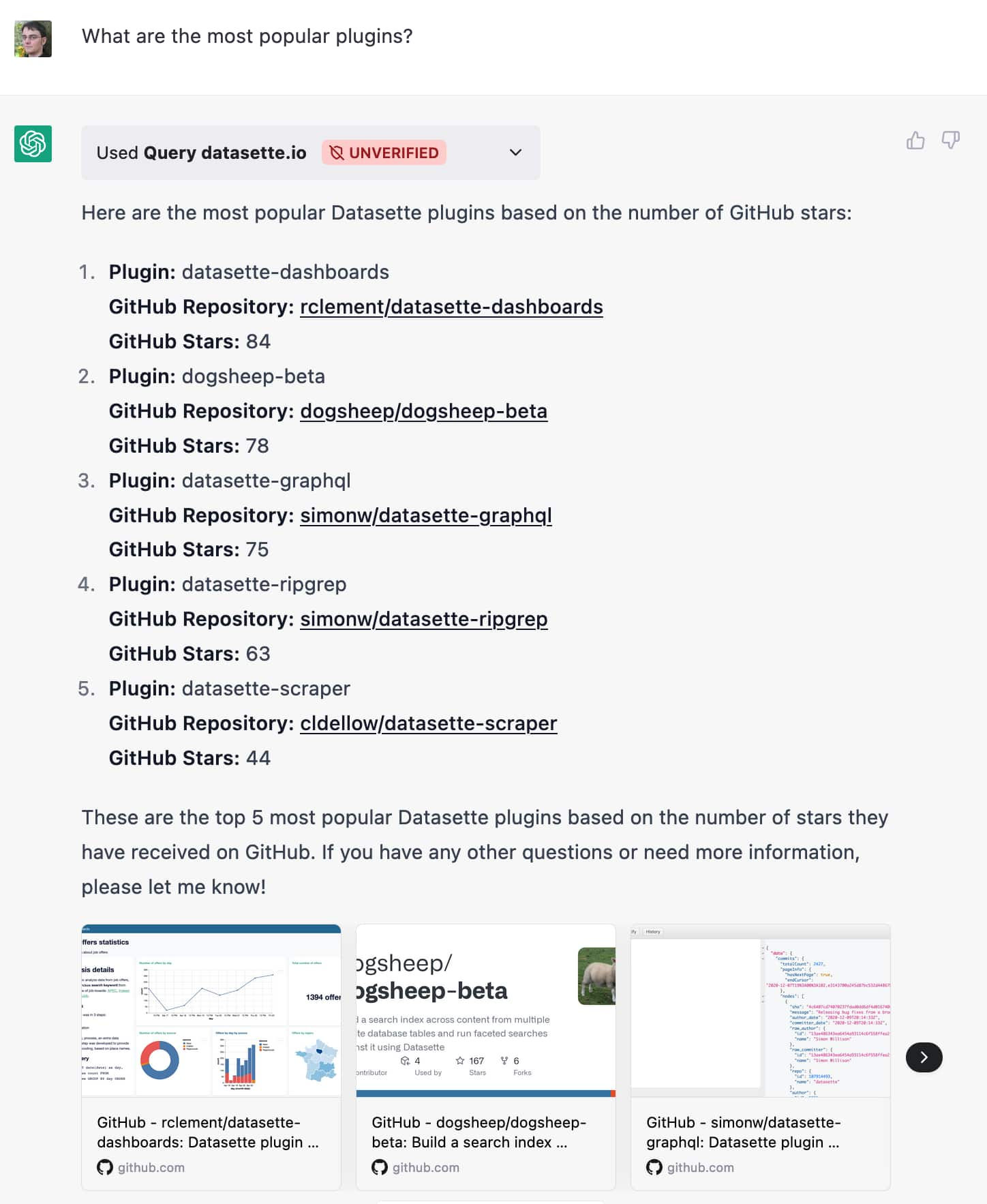Posts tagged projects, openai
Filters: projects × openai × Sorted by date
Large Language Models can run tools in your terminal with LLM 0.26
LLM 0.26 is out with the biggest new feature since I started the project: support for tools. You can now use the LLM CLI tool—and Python library—to grant LLMs from OpenAI, Anthropic, Gemini and local models from Ollama with access to any tool that you can represent as a Python function.
[... 2,799 words]LLM 0.26a0 adds support for tools! It's only an alpha so I'm not going to promote this extensively yet, but my LLM project just grew a feature I've been working towards for nearly two years now: tool support!
I'm presenting a workshop about Building software on top of Large Language Models at PyCon US tomorrow and this was the one feature I really needed to pull everything else together.
Tools can be used from the command-line like this (inspired by sqlite-utils --functions):
llm --functions ' def multiply(x: int, y: int) -> int: """Multiply two numbers.""" return x * y ' 'what is 34234 * 213345' -m o4-mini
You can add --tools-debug (shortcut: --td) to have it show exactly what tools are being executed and what came back. More documentation here.
It's also available in the Python library:
import llm def multiply(x: int, y: int) -> int: """Multiply two numbers.""" return x * y model = llm.get_model("gpt-4.1-mini") response = model.chain( "What is 34234 * 213345?", tools=[multiply] ) print(response.text())
There's also a new plugin hook so plugins can register tools that can then be referenced by name using llm --tool name_of_tool "prompt".
There's still a bunch I want to do before including this in a stable release, most notably adding support for Python asyncio. It's a pretty exciting start though!
llm-anthropic 0.16a0 and llm-gemini 0.20a0 add tool support for Anthropic and Gemini models, depending on the new LLM alpha.
Update: Here's the section about tools from my PyCon workshop.
Long context support in LLM 0.24 using fragments and template plugins
LLM 0.24 is now available with new features to help take advantage of the increasingly long input context supported by modern LLMs.
[... 1,896 words]LLM 0.22, the annotated release notes
I released LLM 0.22 this evening. Here are the annotated release notes:
[... 1,340 words]OpenAI o3-mini, now available in LLM
OpenAI’s o3-mini is out today. As with other o-series models it’s a slightly difficult one to evaluate—we now need to decide if a prompt is best run using GPT-4o, o1, o3-mini or (if we have access) o1 Pro.
[... 748 words]LLM 0.20. New release of my LLM CLI tool and Python library. A bunch of accumulated fixes and features since the start of December, most notably:
- Support for OpenAI's o1 model - a significant upgrade from
o1-previewgiven its 200,000 input and 100,000 output tokens (o1-previewwas 128,000/32,768). #676 - Support for the
gpt-4o-audio-previewandgpt-4o-mini-audio-previewmodels, which can accept audio input:llm -m gpt-4o-audio-preview -a https://static.simonwillison.net/static/2024/pelican-joke-request.mp3#677 - A new
llm -x/--extractoption which extracts and returns the contents of the first fenced code block in the response. This is useful for prompts that generate code. #681 - A new
llm models -q 'search'option for searching available models - useful if you've installed a lot of plugins. Searches are case insensitive. #700
Prompts.js
I’ve been putting the new o1 model from OpenAI through its paces, in particular for code. I’m very impressed—it feels like it’s giving me a similar code quality to Claude 3.5 Sonnet, at least for Python and JavaScript and Bash... but it’s returning output noticeably faster.
[... 1,119 words]First impressions of the new Amazon Nova LLMs (via a new llm-bedrock plugin)
Amazon released three new Large Language Models yesterday at their AWS re:Invent conference. The new model family is called Amazon Nova and comes in three sizes: Micro, Lite and Pro.
[... 2,385 words]datasette-queries. I released the first alpha of a new plugin to replace the crusty old datasette-saved-queries. This one adds a new UI element to the top of the query results page with an expandable form for saving the query as a new canned query:
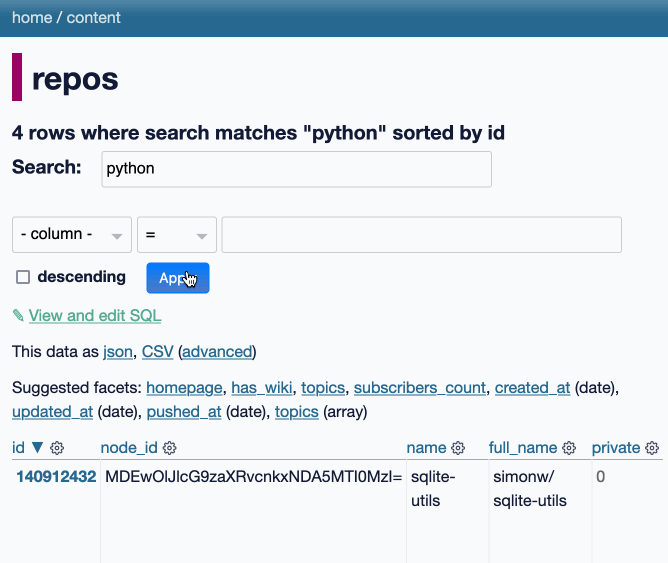
It's my first plugin to depend on LLM and datasette-llm-usage - it uses GPT-4o mini to power an optional "Suggest title and description" button, labeled with the becoming-standard ✨ sparkles emoji to indicate an LLM-powered feature.
I intend to expand this to work across multiple models as I continue to iterate on llm-datasette-usage to better support those kinds of patterns.
For the moment though each suggested title and description call costs about 250 input tokens and 50 output tokens, which against GPT-4o mini adds up to 0.0067 cents.
You can now run prompts against images, audio and video in your terminal using LLM
I released LLM 0.17 last night, the latest version of my combined CLI tool and Python library for interacting with hundreds of different Large Language Models such as GPT-4o, Llama, Claude and Gemini.
[... 1,399 words]llm-whisper-api. I wanted to run an experiment through the OpenAI Whisper API this morning so I knocked up a very quick plugin for LLM that provides the following interface:
llm install llm-whisper-api
llm whisper-api myfile.mp3 > transcript.txt
It uses the API key that you previously configured using the llm keys set openai command. If you haven't configured one you can pass it as --key XXX instead.
It's a tiny plugin: the source code is here.
Experimenting with audio input and output for the OpenAI Chat Completion API
OpenAI promised this at DevDay a few weeks ago and now it’s here: their Chat Completion API can now accept audio as input and return it as output. OpenAI still recommend their WebSocket-based Realtime API for audio tasks, but the Chat Completion API is a whole lot easier to write code against.
[... 1,555 words]LLM 0.16.
New release of LLM adding support for the o1-preview and o1-mini OpenAI models that were released today.
My @covidsewage bot now includes useful alt text. I've been running a @covidsewage Mastodon bot for a while now, posting daily screenshots (taken with shot-scraper) of the Santa Clara County COVID in wastewater dashboard.
Prior to today the screenshot was accompanied by the decidedly unhelpful alt text "Screenshot of the latest Covid charts".
I finally fixed that today, closing issue #2 more than two years after I first opened it.
The screenshot is of a Microsoft Power BI dashboard. I hoped I could scrape the key information out of it using JavaScript, but the weirdness of their DOM proved insurmountable.
Instead, I'm using GPT-4o - specifically, this Python code (run using a python -c block in the GitHub Actions YAML file):
import base64, openai client = openai.OpenAI() with open('/tmp/covid.png', 'rb') as image_file: encoded_image = base64.b64encode(image_file.read()).decode('utf-8') messages = [ {'role': 'system', 'content': 'Return the concentration levels in the sewersheds - single paragraph, no markdown'}, {'role': 'user', 'content': [ {'type': 'image_url', 'image_url': { 'url': 'data:image/png;base64,' + encoded_image }} ]} ] completion = client.chat.completions.create(model='gpt-4o', messages=messages) print(completion.choices[0].message.content)
I'm base64 encoding the screenshot and sending it with this system prompt:
Return the concentration levels in the sewersheds - single paragraph, no markdown
Given this input image:
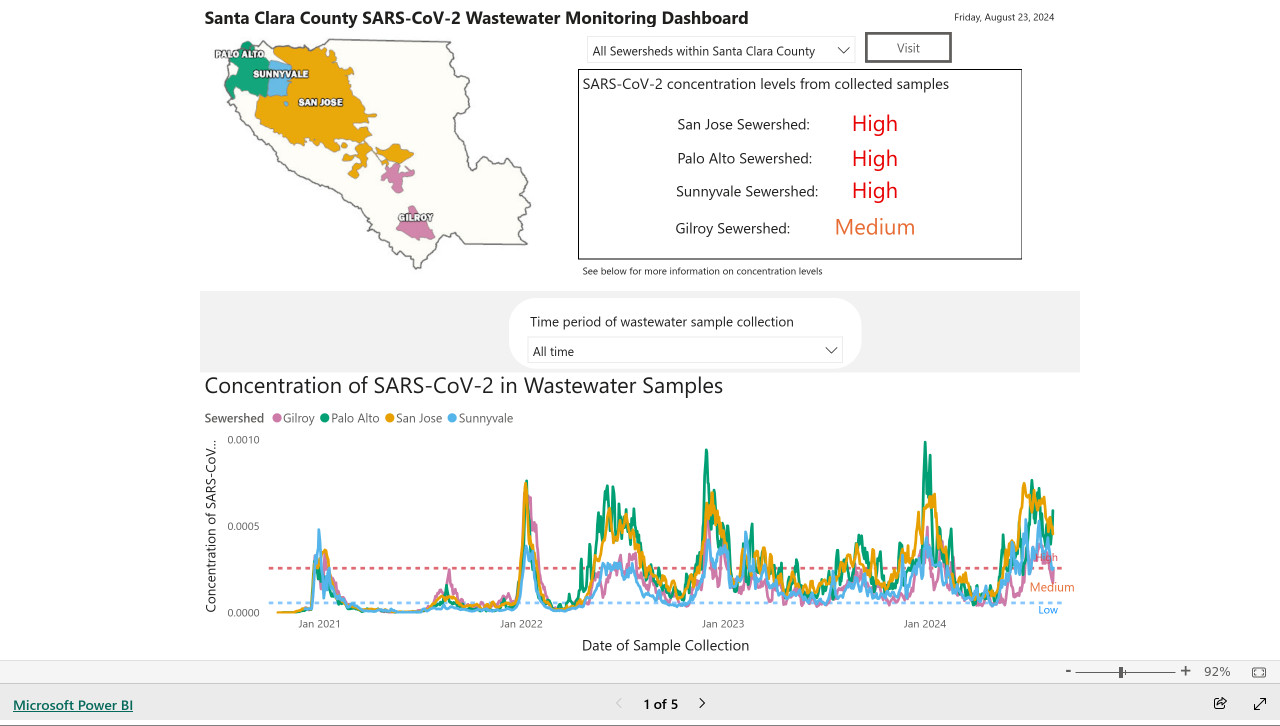
Here's the text that comes back:
The concentration levels of SARS-CoV-2 in the sewersheds from collected samples are as follows: San Jose Sewershed has a high concentration, Palo Alto Sewershed has a high concentration, Sunnyvale Sewershed has a high concentration, and Gilroy Sewershed has a medium concentration.
The full implementation can be found in the GitHub Actions workflow, which runs on a schedule at 7am Pacific time every day.
LLM 0.15. A new release of my LLM CLI tool for interacting with Large Language Models from the terminal (see this recent talk for plenty of demos).
This release adds support for the brand new GPT-4o mini:
llm -m gpt-4o-mini "rave about pelicans in Spanish"
It also sets that model as the default used by the tool if no other model is specified. This replaces GPT-3.5 Turbo, the default since the first release of LLM. 4o-mini is both cheaper and way more capable than 3.5 Turbo.
Language models on the command-line
I gave a talk about accessing Large Language Models from the command-line last week as part of the Mastering LLMs: A Conference For Developers & Data Scientists six week long online conference. The talk focused on my LLM Python command-line utility and ways you can use it (and its plugins) to explore LLMs and use them for useful tasks.
[... 4,992 words]PDF to Podcast (via) At first glance this project by Stephan Fitzpatrick is a cute demo of a terrible sounding idea... but then I tried it out and the results are weirdly effective. You can listen to a fake podcast version of the transformers paper, or upload your own PDF (with your own OpenAI API key) to make your own.
It's open source (Apache 2) so I had a poke around in the code. It gets a lot done with a single 180 line Python script.
When I'm exploring code like this I always jump straight to the prompt - it's quite long, and starts like this:
Your task is to take the input text provided and turn it into an engaging, informative podcast dialogue. The input text may be messy or unstructured, as it could come from a variety of sources like PDFs or web pages. Don't worry about the formatting issues or any irrelevant information; your goal is to extract the key points and interesting facts that could be discussed in a podcast. [...]
So I grabbed a copy of it and pasted in my blog entry about WWDC, which produced this result when I ran it through Gemini Flash using llm-gemini:
cat prompt.txt | llm -m gemini-1.5-flash-latest
Then I piped the result through my ospeak CLI tool for running text-to-speech with the OpenAI TTS models (after truncating to 690 tokens with ttok because it turned out to be slightly too long for the API to handle):
llm logs --response | ttok -t 690 | ospeak -s -o wwdc-auto-podcast.mp3
And here's the result (3.9MB 3m14s MP3).
It's not as good as the PDF-to-Podcast version because Stephan has some really clever code that uses different TTS voices for each of the characters in the transcript, but it's still a surprisingly fun way of repurposing text from my blog. I enjoyed listening to it while I was cooking dinner.
LLM 0.14, with support for GPT-4o. It's been a while since the last LLM release. This one adds support for OpenAI's new model:
llm -m gpt-4o "fascinate me"
Also a new llm logs -r (or --response) option for getting back just the response from your last prompt, without wrapping it in Markdown that includes the prompt.
Plus nine new plugins since 0.13!
Three major LLM releases in 24 hours (plus weeknotes)
I’m a bit behind on my weeknotes, so there’s a lot to cover here. But first... a review of the last 24 hours of Large Language Model news. All times are in US Pacific on April 9th 2024.
[... 1,401 words]Extracting data from unstructured text and images with Datasette and GPT-4 Turbo. Datasette Extract is a new Datasette plugin that uses GPT-4 Turbo (released to general availability today) and GPT-4 Vision to extract structured data from unstructured text and images.
I put together a video demo of the plugin in action today, and posted it to the Datasette Cloud blog along with screenshots and a tutorial describing how to use it.
LLM 0.13: The annotated release notes
I just released LLM 0.13, the latest version of my LLM command-line tool for working with Large Language Models—both via APIs and running models locally using plugins.
[... 1,278 words]Weeknotes: DevDay, GitHub Universe, OpenAI chaos
Three weeks of conferences and Datasette Cloud work, four days of chaos for OpenAI.
[... 766 words]ospeak: a CLI tool for speaking text in the terminal via OpenAI
I attended OpenAI DevDay today, the first OpenAI developer conference. It was a lot. They released a bewildering array of new API tools, which I’m just beginning to wade my way through fully understanding.
[... 1,109 words]LLM 0.11. I released LLM 0.11 with support for the new gpt-3.5-turbo-instruct completion model from OpenAI.
The most interesting feature of completion models is the option to request “log probabilities” from them, where each token returned is accompanied by up to 5 alternatives that were considered, along with their scores.
LLM 0.4. I released a major update to my LLM CLI tool today—version 0.4, which adds conversation mode and prompt templates so you can store and re-use interesting prompts, plus a whole bunch of other large and small improvements.
I also released 0.4.1 with some minor fixes and the ability to install the tool using Hombrew: brew install simonw/llm/llm
Understanding GPT tokenizers
Large language models such as GPT-3/4, LLaMA and PaLM work in terms of tokens. They take text, convert it into tokens (integers), then predict which tokens should come next.
[... 1,575 words]llm, ttok and strip-tags—CLI tools for working with ChatGPT and other LLMs
I’ve been building out a small suite of command-line tools for working with ChatGPT, GPT-4 and potentially other language models in the future.
[... 1,328 words]Enriching data with GPT3.5 and SQLite SQL functions
I shipped openai-to-sqlite 0.3 yesterday with a fun new feature: you can now use the command-line tool to enrich data in a SQLite database by running values through an OpenAI model and saving the results, all in a single SQL query.
[... 1,219 words]GPT-3 token encoder and decoder. I built an Observable notebook with an interface to encode, decode and search through GPT-3 tokens, building on top of a notebook by EJ Fox and Ian Johnson.
I built a ChatGPT plugin to answer questions about data hosted in Datasette
Yesterday OpenAI announced support for ChatGPT plugins. It’s now possible to teach ChatGPT how to make calls out to external APIs and use the responses to help generate further answers in the current conversation.
[... 1,801 words]